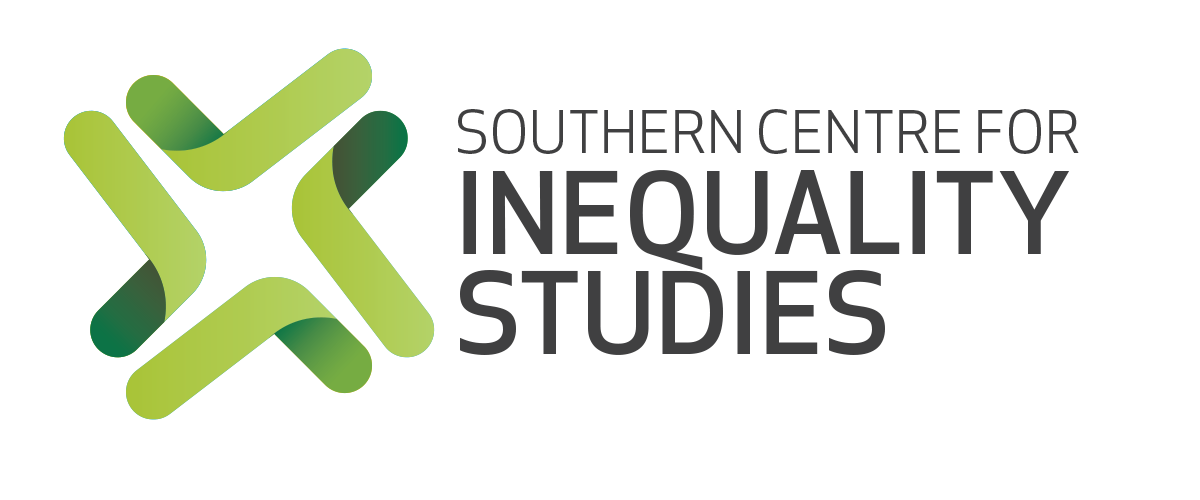We’re not all equal under lockdown
Compiled by: David Francis and Arabo Ewinyu (SCIS) in collaboration with Andy Wassung (Soul Providers Collective)

It is another morning in South Africa, and as the coronavirus-induced national lockdown continues, so too does our fight against this common enemy. However, while the pandemic may be global and the enemy common, here in South Africa, the effects are not felt equally by all. While the world may be at war, South Africa has another battle of its own: that against inequality.
Although President Ramaphosa and his government recently announced drastic action in the form of an extraordinary R500-billion COVID-19 economic relief package, and the extension of the national lockdown to curb the spread of the virus, the evidence is that not all South Africans are in this together.
Indeed, in the most unequal country in the world, the continued confinement to one’s own home, and the polarising experiences of and reactions to this by different classes of society, clearly expose the extreme and persistent economic and social inequalities in South Africa.
South Africa through the eyes of three citizens
On one side, society’s most vulnerable people, like Sello Mabaane from Tshwane, lack the comfort of a home to be confined to, with thousands like him seeking relief in churches and other temporary shelters if they’re lucky, or on the street if they’re not.
Then there are the millions of South Africans living in townships and informal settlements – the under-developed, racially segregated urban areas on the outskirts of towns and cities where black residents were forced to move to during Apartheid. These people, in comparison, are marginally better off, sharing one bedroom between eight people in the case of David Malukelu from Alexandra Township.
Now, compare Sello Mabaane and David Malukelu’s circumstances with a more well-off South African like Mark Gevisser. He is a prominent South African journalist who has also written about how the country’s stark inequalities have been further exposed by the lockdown. He himself points out that not only is he able to shelter in his open-plan, two-storey home in the Cape suburb of Kalk Bay, he is able to draw pleasure from it.
Unlike Mabaane and Malukelu, many of the privileged minority that make up South Africa’s middle and upper classes are confined – by the same lockdown – to relatively spacious homes, apartment blocks or gated communities in leafy suburbs, with access to WiFi, Netflix, DStv, pools and gardens, among other luxuries.
Despite this, while the many battle long queues for social grants, and hunger and unemployment rise as a result of the lockdown, many of the rich seem to battle with the idea of just staying at home – taking to social media to report symptoms of “cabin fever” and to wave their fists in protest at not being able to jog or walk with their dogs outside – this, despite the fact that a large portion are able to continue to earn an income working from home.
One merely needs to turn to South African Twitter to find examples of these experiences and reactions, and the polarised lived realities they expose.
“I envy you Nigel. Where I am in South Africa walking outside is not allowed. (Even applies to dog owners). Walking round and round the garden is not much fun!” – Jack
“South Africa are not united in fighting [Covid-19] - the regulations imposed are dictatorial and stupid - there is no evidence walking one’s dog keeping a social distance causes the spread of the virus! It's only the stupid minister of police who thinks it's a good punishment!” – Joe
“In SA, [black] people shopping in the township for food are getting beaten up by police and army personnel deployed during South Africa’s #LockdownSA, but white people [are] still doing it freely; that’s the walking of dogs in the street and their running stuff. What’s going on here SA?” – Cheryl
“You guys are sooo lucky to be able to go for a walk. In South Africa we are on day 22 of a 36 day lock down with no walking of dogs allowed. Go figure it's an ANC thang. With 4 dogs who are used to running for 2 hours daily, it's no joke.” – Daniella
“Please go for many walks and maybe even a jog for me!! We aren’t allowed out in South Africa and after 2 weeks with 3 weeks left to go I have serious cabin fever! Doing as many indoor circuit workouts and yoga sessions as I can but I would LOVE to be able to go out for a run!!” - Robyn
“We are on day 5 of 21 national lockdown in South Africa, and its been hard. Our schools are all closed and only essential shops are open. I do welcome this, but I'm getting cabin fever of my 3rd week working from home. I miss going to farmers markets the most.” - Nisa
“5 ways to make sure your dog doesn’t get canine cabin fever” - MSN South Africa
“Is cabin fever starting to get to you? Are you missing the big outdoors? Join WildEarth.TV on a virtual African safari as guides search for wild animals live from South Africa.” - Herald Live
So as we start another day of national lockdown in South Africa – with all the uncertainties that that brings – one thing is certain: in our country, the most unequal in the world, we’re not all equal under lockdown.
This is the second in a series of blog posts that attempt to highlight the relationship between the COVID-19 pandemic and inequality in South Africa.

